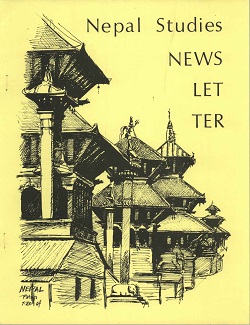Abstract
The term ‘development’ defines the Chinese official discourse on Tibet and Tibetans. The ideology of development has been articulated in relation to what development symbolically means, and how it should be practiced within the frame of representation and implementation of development projects and programs. The aim of this paper is thus to investigate what development come to mean for the grassroots community of development subjects in light of the official versus counter-official development discourses. Specifically, I examine how the relocated villagers in Kangding (Tib. Dartsedo) experience, and respond to, one official development project, namely 'New Kangding Town' construction (kangding xincheng) project. I discuss, first of all, how the project has affected the lives of local villagers in Kangding, and the ‘coping’ strategies the villagers have adopted as the process of urbanization unfolds. Then, I argue that in contrast to the conventional representation of village life as ‘backward’ and ‘poor’, the immediate economic conditions and livelihood in general has, ironically, deteriorated compare to the 'subsistent' economy prior to the development. Despite invocation of the glittering language of ‘people first’ and ‘scientific’ development, implementation of this development project in reality stands in sharp contrast with what has been otherwise portrayed in public discourse. In other words, the notion of development has been by and large taken for granted in the discourses of development. On the other hand, when deployed, whether officially or unofficially, the concept of development has come to carry multiple meanings depending on the context within which it is being constructed. One of the contentions of the new town plan has been its ‘inability’ to address the villagers’ livelihoods in the post-relocation period. In fact, there seems to have been an underlying assumption that the construction of a new town would automatically create opportunities and prosperity for the villagers in the future, but without much concrete proposal at present to achieve such an objective. I further argue that the official development discourse tends to construct the villagers as “backward” and “passive”, and in need of state intervention in order to develop them. In the process, it thus fails to take into account of the dynamic agency and proactive participation of the villagers in the construction of their own counter-discourse of development. Finally, I will discuss the interface between the development officials and the villagers in the light of the Fergusonian ‘side effects’ of the project. One notable implication has been, in addition to, an immediate decline of household income, loss of economic freedom or income stability. In other words, the production of ‘economic dependency' on state institutions, in spite of lack of sustained livelihood support or compensation, has been the major ‘unintended’ outcome due to the dispossession and the displacement of their farmland and home, respectively. Furthermore, as the village has transformed into a new town, the administrative apparatus of the state mechanism has also expanded into rural social spaces, infringing on traditional institutions.
Acknowledgements
I would like to extend my sincere thanks to Andrew Fischer, Ken Bauer, and the anonymous reviewer for their valuable comments and corrections.
Recommended Citation
Nyima, Tashi. 2011. Development Discourses on the Tibetan Plateau: Urbanization and Expropriation of Farmland in Dartsedo. HIMALAYA 30(1).
Available at:
https://digitalcommons.macalester.edu/himalaya/vol30/iss1/16


